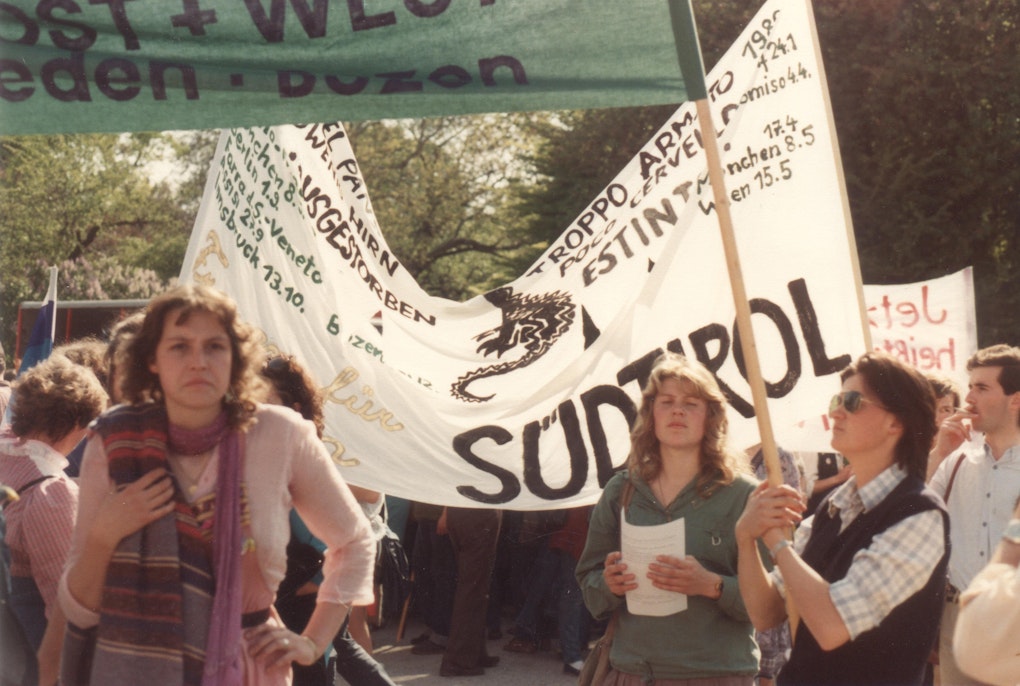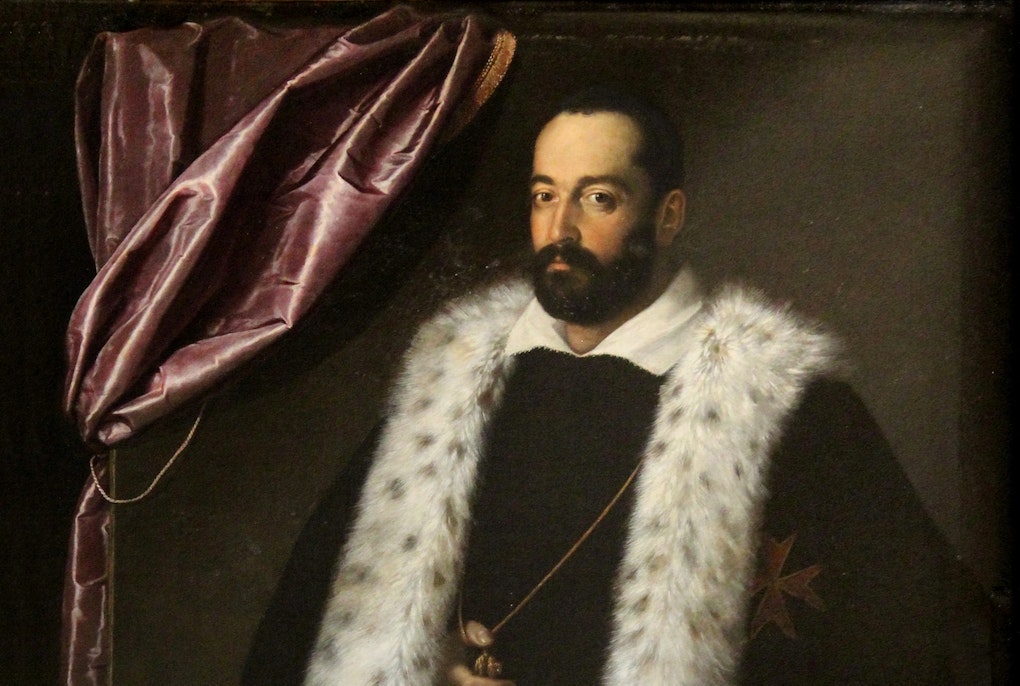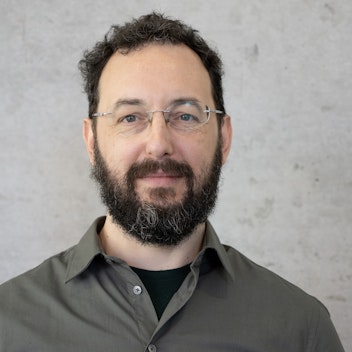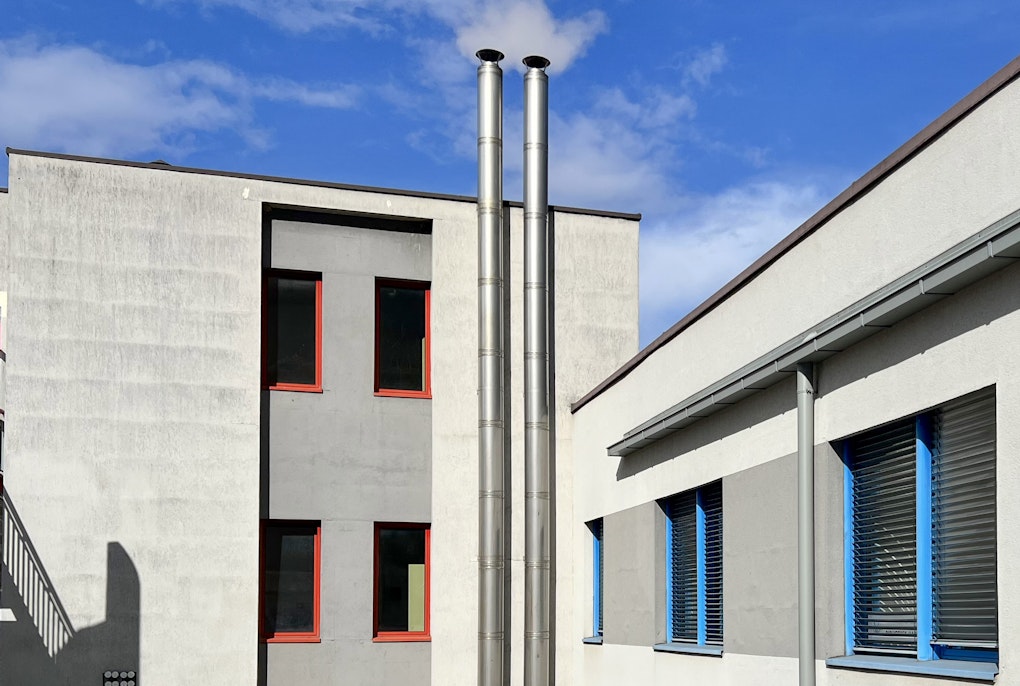magazine_ Interview
"We owe it to the global community”
Conversations between disciplines: interview with lawyer Marc Röggla and Asia expert Günther Cologna.
The German and Ladin language groups in South Tyrol are among the best-protected minorities in the world. Passing on our experiences to less privileged ones is therefore a moral obligation, explains lawyer and autonomy researcher Marc Röggla. Günther Cologna, Asia expert and head of education & training, has been particularly concerned with the situation of an oppressed minority, namely the Tibetans in Chinese-occupied Tibet. And both share the view that around the world, times have been better for minorities.
Mr. Cologna, you’ve been involved with Tibet for a long time, met the Dalai Lama, and have even translated two of his books into German. How did that come about?
Günther Cologna: I saw the Dalai Lama for the first time in in 1988 at a big event in Zurich, I was just one of the thousands in the audience. A few months later I went on an extensive trip to India, which took me to Dharamsala. It was there that I attended an audience with His Holiness - in a much smaller group. It was a beautiful experience. But I was even more touched when I realized firsthand what he means to his people in Tibet.
From India, I then traveled on to Lhasa, and when I told people there about my encounter with the Dalai Lama, they touched me as if they hoped something of his aura would pass over to them. Only then did I understand how much they long for him. I had smuggled in pictures of him, even though it was forbidden and I wouldn't dare to do that today. The people burst into tears.
And how did it come about that you translated his book "Freedom in Exile" into German?
Cologna: That came quite unexpectedly. When the Dalai Lama received the Nobel Peace Prize, I wrote a long article about him and the situation in Tibet for the daily newspaper the Dolomiten. An editor at his German publishing house read it and contacted me asking if I was interested in translating his second autobiography. Of course, I was and in middle of the translation, the Dalai Lama came to Milan so obviously I went there. And during his public speech I noticed something: When the Dalai Lama spoke, he often made those who understood him in English laugh; those who listened to the Italian translation however never laughed - the joke was gone. That was a key moment for me: I made sure that the humor of the Dalai Lama would not get lost in my translation.
"Thanks to new technologies, surveillance has become much stronger in Tibet. There are practically no free spaces anymore."
Günther Cologna
You were back in Tibet in 2016 - what changes did you see?
Cologna: For one thing, Lhasa's cityscape had transformed completely: In 1988, there was only electricity there for a few hours a day, now there are high-rise buildings everywhere, are wide streets with lots of traffic. The Tibetans, however, do not participate in this economic upswing; they are marginalized.
More and more Chinese people are coming into the country, in their eyes the Tibetans are inferior, and they let them feel it. Above all, repression has increased. During my last trip, the police presence was massive; you couldn't drive 100 kilometers across the country without being checked. Thanks to the Internet and new technologies, surveillance has become much stronger. There are webcams everywhere, even in cabs. There are practically no free spaces anymore. No one can escape. The Chinese are waiting for the Dalai Lama to die, hoping that a crisis will divide the Tibetan community and they can then manipulate it. There is no willingness for dialogue.
In the 1990s, however, it did not seem unrealistic that Tibet could be given autonomy based on the South Tyrolean model. At that time, Eurac Research advised the Tibetan government-in-exile in this sense.
Cologna: Yes, that was the time after the fall of the Berlin Wall - historically and psychologically a very special moment. Many things seemed possible then, there was a spirit of optimism. Nelson Mandela became president of South Africa, and people thought that the time for Tibet had come. There were expressions of sympathy from all sides, Hollywood had discovered the subject of Tibet and the Dalai Lama was received by governments worldwide. But twenty years later, China had become so economically powerful that hardly anyone dared criticize it anymore. Obama did invite the Dalai Lama, but he was let into the White House through a side door. In the meantime, the attitude toward China has become more critical again, but that hope, as it was felt in the 1990s is over.
Marc Röggla: In Europe, too, the 1990s were the golden age for minorities. Today we are in a very different situation. The Minority-SafePack-Initiative, with which over a million people in the EU demanded legal regulations to protect national and linguistic minorities, was basically just wiped off the table by the EU Commission. United in Diversity is a nice slogan, but not much is happening right now in the EU in this direction. In many countries around the world, minorities are suppressed, which often leads to violent conflicts, especially in autocratic regimes. As one of the best protected minorities in the world, we in South Tyrol owe it to the global community to pass on our experiences so that others can benefit from them. The positive as well as the negative - it has to be transparent: what has worked, what hasn’t. The case of South Tyrol shows it can be done without violence; a plan B. We are a positive model for the resolution of minority conflicts.
Can such a model be exported?
Röggla: Of course, not one-to-one. We make that clear to the delegations from minority regions that come to us at the Center for Autonomy Experience who sometimes have the expectation that they will find something here that they can then simply implement at home. This idea is far from reality. What we can offer, however, is valuable knowledge. Eurac Research has built up a great deal of know-how in this field over the past 30 years; there is probably no other institution in Europe that has such a concentrated and abundant resource on minority rights, federalism, and multilingualism. We really have something there that we can pass on.
The Center for Autonomy Experience explains South Tyrol's autonomy not only to delegations from all over the world, but also to young people in this region ...
Röggla: That is an important aspect of our work: to convey a basic understanding of a topic that has such significance in our region. Because although autonomy resonates in everything in South Tyrol, it is not omnipresent. Understandably so: As long as things work for everyone, it is secondary that the basis for this is autonomy. And the generation that experienced the struggle for minority protection and autonomy is slowly dying off; those who have already grown up in an autonomous South Tyrol know nothing else - hard-won rights are simply their normality. And when something is normal, people often no longer pay much attention to it.
"It would be time to turn some screws on the autonomy statute, to rethink some issues."
Marc Röggla
So, is it actually a compliment to a functional autonomy that you don't have to deal with it?
Röggla: But it should be dealt with. Because although the autonomy statute works well so far, it is getting rusty with age; it would be time to turn some screws, to rethink some issues. For example, the jurisdiction of the Constitutional Court dilutes the provincial competences; the word Europe does not appear in the statute, nor does cross-border cooperation play a role, to name just a few examples. But it is difficult to find the political will for this fine-tuning, because now no one sees much need for change. And if we look to Austria, that is, to our protective power: there, too, there has been a generational change in the administrative apparatus and there is no longer the same sensitivity towards South Tyrol that there was in earlier years. The topic of autonomy is therefore moving into the background for several reasons and this creeping process is one that should be kept an eye on.
Cologna: I would like to emphasize that. It is immensely important to pass on experience and knowledge from generation to generation. Otherwise, we lose awareness of the privileges we have gained thanks to autonomy. If this appreciation is lost, there is a danger that our rights will eventually be curtailed - and people won't even realize what they have lost.
How difficult is it to get school classes excited about the topic of autonomy, Mr. Röggla?
Röggla: Not difficult at all: the students are usually very interested in discussing autonomy, because they know that it is closely related to their lives. But other topics are more important to young people today. This does not at all mean that young people are apolitical, as the older generation likes to claim - in fact, they are extremely committed, just look at the "Fridays for Future" movement. And when it comes to climate protection, autonomy comes into play again: South Tyrol could set a good example because the province has primary competences in certain areas.
By getting involved in climate protection, young people are possibly discovering the topic of autonomy for themselves, according to the motto: South Tyrol has the competences, so politics should also use them?
Röggla: Exactly. Every generation has its own tasks and wishes. That's why you can't expect young people today, to feel about autonomy in the same way as the generation that fought for it. The other day, a high school student asked me after a lecture: why we still needed minority protection? The world is becoming more and more uniform anyway; English is lingua franca.
What did you answer?
Röggla: That diversity in itself is worth protecting because our idiosyncrasies make up the world. I am aware that in 500 or 1,000 years, we will probably no longer be talking about autonomy: ultimately, minority rights are human rights, and the goal should be that everyone has the same rights. Unfortunately, the trend is going in the opposite direction: minorities are dying out. Languages are dying out every day.
Mr. Cologna, you have been involved in continuing education and lifelong learning since the early days of Eurac Research. What has been the development in this area over the decades?
Cologna: More has happened in two years than in the previous twenty; the pandemic brought about a revolution. It was necessary to switch to online courses and e-learning programs in a short period of time, and that led to a great surge in innovation. Technical possibilities have improved enormously. And we now realize that online offerings were not a temporary solution but ones that will continue to accompany us. When we were planning the next courses for South Tyrol's municipal secretaries a few weeks ago, we were asked to offer as much as possible online.
Are the days for seminars in presence numbered?
Cologna: I wouldn't go that far. Some learning experiences can't really be reproduced. When people sit in front of a monitor, the spark often doesn't really fly. Interaction is difficult: I find it hard to imagine, for example, that an online rhetoric course will produce great results. But knowledge transfer works very well online, and that opens completely new possibilities for us. Together with the Institute for Renewable Energies, for example, we offer a course on façade technology, six modules over the course of nine months. After three editions in presence, we had to switch to online in 2020 - and now we even have participants in South Korea. We can now reach a much larger group of interested parties. And an even more important argument is the carbon footprint. If 30 municipal secretaries stay at home at their screens instead of traveling to Bozen-Bolzano from all corners of South Tyrol, that saves a lot of emissions. In the future, people will switch to online wherever possible and whenever it makes sense, also because of climate protection.
If we look into the future of autonomy: South Tyrol's society is becoming more and more diverse and complex, new minorities have joined the old ones - will the autonomy statute also have to change?
Cologna: Inevitably. The autonomy statute reflects the situation of the post-war period and was created to protect the German and Ladin language groups. At that time, people emigrated from South Tyrol, today people come to us from all over the world. A system that was created to regulate the distribution of power and budgets between the three language groups has reached its limits.
Röggla: One of the building blocks that would have to be addressed in terms of autonomy is how to cope with demographic change due to migration without restricting existing language group rights. Whereby this thinking in terms of definitions - old, autochthone, traditional minorities versus new minorities or people "with a migration background" - is a very Eurocentric way of looking at things, and one which is being broken up in the U.S., for example, by movements like Black Lives Matter. As already mentioned, minority rights are basically human rights. The goal must be a society that is as equal and just as possible, in which all population groups participate in public life, and all enjoy the strong protection of their rights.
Marc Röggla
Marc Röggla studied law at the University of Innsbruck and has been conducting research at Eurac Research's Institute for Minority Rights since 2013. He is head of the Center for Autonomy Experience which was founded in 2020 and aims to bring South Tyrol's model of autonomy and minority protection to the world. He also lives out his enthusiasm for knowledge transfer in the podcast "Isch Gleich". When he does not devote himself to his family, he (increasingly rarely!) finds time to run or play badminton.
Günther Cologna
Günther Cologna studied journalism in Salzburg and comparative literature in the USA. He lived and taught in the USA and Japan and has been involved with Tibet since the late 1980s. After working as a freelance translator for some time, he joined Eurac Research in 1996, where he has built up an administration academy and is now head of the Education & Training department. He defines himself as a border crosser between the East and West.









